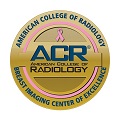Breast Care
Whether your priority is breast cancer prevention, diagnosis or treatment, Saint Anne’s Hospital’s Robert F. Stoico/FIRSTFED Center for Breast Care offers the high-quality care you need.
Whether your priority is breast cancer prevention, diagnosis or treatment, Saint Anne’s Hospital’s Robert F. Stoico/FIRSTFED Center for Breast Care offers the high-quality care you need.
Robert F. Stoico/FIRSTFED Center for Breast Care
795 Middle St.
Fall River, MA 02721
508-235-5353

We are a Breast Imaging Center of Excellence accredited by the American College of Radiology’s Commission on Quality and Safety and the Commission on Breast Imaging. Our center also features a unique collaboration with Women & Infants Hospital in Providence, the leading dedicated women’s hospital in our region specializing in women’s cancer care.
Convenient early-morning, evening and Saturday appointments

One out of eight women will develop breast cancer at some point in their lives.
A mammography exam can detect a tumor long before you can feel it. Such early detection of breast cancer can save your life. It can also give you an opportunity to choose between treatment options.
Digital 3D mammography is the most effective screening method of early detection of breast cancer. This technology offers women a number of benefits, including improved image quality, reduced procedure time and enhanced patient comfort.
At Saint Anne’s Hospital, we offer 3D screening mammography and diagnostic mammography. Flexible appointments are available, including evenings and Saturday hours. A physician referral for a screening mammogram is not required. Same-day screening mammogram appointments are available. See the form below.
If you are at average risk, without a family history of breast or ovarian cancer, Saint Anne’s Hospital and Women & Infants Hospital's program in Women’s Oncology follow recommendations made by American College of Radiology and Society of Breast Imaging, which call for annual screening mammography beginning at age 40, and continuing annually throughout your lifetime, as long as you remain in good health and are willing and able to undergo additional tests, including a biopsy.
If you have an elevated risk for breast cancer, national guidelines help you determine when screening should begin and what type of scans should be performed. These guidelines factor your personal health details, such as previous breast biopsies, family history or a known hereditary susceptibility to breast cancer, such as the BRCA gene. These details are analyzed to develop a breast cancer screening plan that matches your priorities.
Our team of experts—including medical oncologists, surgeons, pathologists and radiologists—will meet to discuss your diagnosis and will work closely with you to develop your unique treatment plan.
Understanding your genetic risks can help you and your doctor identify breast cancer early, when treatment is more effective. Our collaboration with Women & Infants Hospital brings you access to genetic testing experts, who can make sure you’re aware of your genetic breast cancer risk.
We offer a range of treatment options, including medical treatment, radiation therapy, and surgery.
A breast care patient navigator directs your care at every step of the way, helping you plan and understand every aspect of your care, from biopsies and treatment to consults with a doctor or social support services.
We offer coordinated care with Saint Anne's Hospital Regional Cancer Center, our comprehensive community-based cancer care program. When complex surgical needs arise, our collaboration with Women and Infants brings you additional expertise.
 When surgery is required to remove a lump in the breast (lumpectomy), we offer an advanced technology called Magseed®. Days or weeks before surgery, a tiny radiation-free seed about the size of a grain of rice is firmly implanted within a tumor. Because it is magnetic and not radioactive, there are no restrictions on how long it can remain in the body before surgery. On the day of surgery, the surgeon uses a special magnetic probe to detect the Magseed, which guides the surgeon directly to the tumor.
When surgery is required to remove a lump in the breast (lumpectomy), we offer an advanced technology called Magseed®. Days or weeks before surgery, a tiny radiation-free seed about the size of a grain of rice is firmly implanted within a tumor. Because it is magnetic and not radioactive, there are no restrictions on how long it can remain in the body before surgery. On the day of surgery, the surgeon uses a special magnetic probe to detect the Magseed, which guides the surgeon directly to the tumor.
Because breast cancer is the most common type of cancer in women, every woman should consider herself at risk. However, the following factors are associated with an increased risk for breast cancer.
Mammograms are not a perfect cancer detection test. If you have any of the following symptoms, regardless of whether you've had a mammogram, please contact your physician.